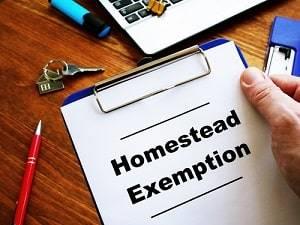Understanding the Arizona homestead exemption is crucial if you’re considering bankruptcy. It provides homeowners with a shield for their home’s equity. Let’s delve into the details of this legal protection and how it impacts your primary residence.
What Is the Arizona Homestead Exemption?
The Arizona homestead exemption applies to protect a debtor’s primary residence from creditors. It even applies if you don’t file bankruptcy. Arizona voters overwhelmingly passed Proposition 209 in November 2022. This initiative substantially increased many Arizona exemptions, including the homestead exemption.
As of January 1, 2025, the Arizona homestead exemption covers up to approximately $425,200 of equity in a person’s primary residence. This amount increases annually based on the increases in the cost of living. Since the passage of Proposition 209, Arizona has one of the largest homestead exemptions in the country.
What Property Types Are Covered?
The Arizona homestead exemption only applies to a person’s primary residence. This includes traditional detached homes, condos, townhomes, cooperatives, and affixed mobile homes (along with the land they sit on). The Arizona Supreme Court recently held that motorhomes and RVs are not covered. This ruling came after many bankruptcy courts for years held that motor homes fell within the Arizona homestead exemption.
The Arizona homestead exemption only applies to the property that a debtor occupies as a primary residence. The exemption will not apply to a rental or other investment property.
How Does It Work in Bankruptcy?
Before you file for bankruptcy, you must first determine if the Arizona bankruptcy exemptions apply. If you have not continuously lived in Arizona for the two years prior to filing bankruptcy without interruption, the Arizona bankruptcy exemptions may not apply. As such, you will not be able to utilize the homestead or any Arizona exemptions in a bankruptcy.
Under the Arizona homestead exemption, you can exempt up to approximately $425,200 of your home’s equity from creditors as of January 1, 2025. Equity is the difference between the fair market value of your home and all outstanding mortgages and other liens encumbering the home. For example, assume your home is worth $900,000. Also assume that your outstanding mortgage balance is $600,000. In this scenario, the home would have $300,000 of equity ($900,000 – $600,000). As such, because your home has less than $425,200 of equity, it is exempt.
A few additional details:
- Single Exemption Rule: Whether you’re single or part of a married couple, the law allows only one Arizona homestead exemption per individual or couple.
- Cash Proceeds Protection: If you sell your homestead, the exemption extends to protect the cash from the sale for 18 months or until you use it to purchase a new homestead. If you do not reinvest the cash proceeds into a new Arizona homestead within 18 months, the cash proceeds will no longer be exempt.
- Appreciation Above Homestead Exemption While Bankruptcy Case Remains Open: When you file bankruptcy, your home may have equity less than the homestead exemption. However, what if your home appreciates while your bankruptcy case remains open? This may allow the trustee to take your home when you are least expecting it. An experienced Arizona bankruptcy lawyer can make sure this does not happen.
Cap on the Homestead Exemption Under Section 522(p)
If you acquired your home less than 1,215 days prior to filing bankruptcy, Section 522(p) of the Bankruptcy Code caps the Arizona homestead exemption. 1,215 days comes out to be 3 years and 4 months. As of January 1, 2024, that cap is $189,050. For example, if you acquired your house 3 years before filing bankruptcy, you may only be able to protect up to $189,050 of equity in your home, not the full $414,700 under the Arizona exemption. This cap does not apply outside of bankruptcy when a judgment creditor is trying to foreclose in state court.
However, there are some exceptions to the applicability of the cap under Section 522(p). For example, if you purchased the home with cash proceeds you received from a previous sale of an Arizona homestead, then the cap may not apply. There is also some question about whether equity from appreciation since the purchase is subject to the cap and whether a married couple can double the cap. The cap applicable under Section 522(p) is a fairly recent issue in Arizona. There is very little case law in the Ninth Circuit on some potential exceptions to the Section 522(p) cap.
The Arizona bankruptcy trustees will cap the Arizona homestead exemption to $189,050 under Section 522(p) for any home purchased 1,215 days prior to the bankruptcy. And it is easy for a trustee to determine when you purchased your house. All deeds are public record. If you’re facing bankruptcy, consult with an experienced Arizona bankruptcy lawyer to make informed decisions about protecting your home.

